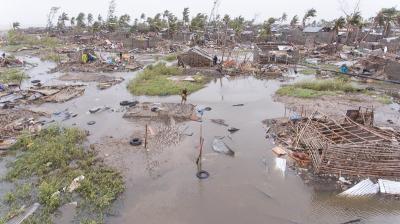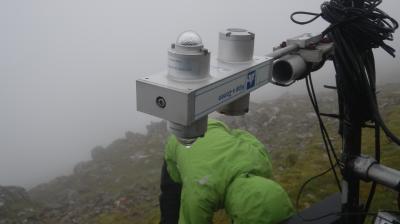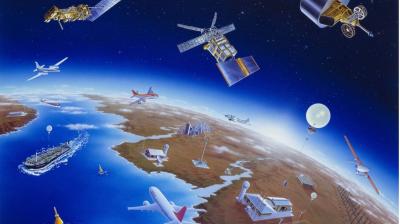
Weather
Weather is the state of the atmosphere at a particular time, as defined by the various meteorological elements, including temperature, precipitation, atmospheric pressure, wind and humidity.
Overview
Weather describes short term events and differs from climate, which describes the average weather conditions for a particular location, over long periods of time, usually years or decades. For example, to obtain information about typical climate conditions a climatological standard normal is computed using data for a period of 30 years.
Weather is an hourly, daily phenomenon that affects every aspect of our lives. Therefore, we need weather forecasts to know what to wear, to plan our day and to prepare for the weather-related hazards that may lie ahead.
Weather forecasts provide essential information to support decision-making in many other areas, including:
• safe transportation on land, by sea and in the air,
• freshwater resources management,
• sport, adventure and tourism,
• agriculture, building infrastructure and energy management,
• taking lifesaving, timely action in the face of impending natural hazards such as tropical cyclones, floods, etc.
Impact
Weather might refer to sunshine, rain, snow, hail, sleet, mist, blizzards, storms, and similar phenomena. Extreme weather events can be any severe or unusual weather event that happens outside normal patterns, or an expected weather event that happens with high intensity during its usual circulation.
Some extreme weather events, such as heatwaves, have become more frequent and more impactful in the past years, due to human-induced climate change and increased global warming.
Visit the Topic page Extreme weather to find out more about extreme weather events and their impacts.
WMO's response
WMO coordinates the worldwide efforts that are a prerequisite to produce accurate and timely weather forecasts.
WMO works with Members and their National Meteorological and Hydrological Services to coordinate the global network of Earth system observations, free and open exchange of data, continuous research, and global, regional and national data-processing for numerical weather prediction - all required to deliver accurate, timely weather forecasts and services.
Each contribution counts and improves the weather forecasts. The results are far greater than the sum of its parts and could not be achieved by any one Member on its own.
WMO presides over the World Weather Information Service, which presents weather observations, weather forecasts and climatological information for selected cities supplied by National Meteorological & Hydrological Services (NMHSs) worldwide.
WMO also presides over the Severe Weather Information Centre. The website is based on advisories issued by Regional Specialized Meteorological Centres (RSMCs) and Tropical Cyclone Warning Centres (TCWCs), and official warnings issued by National Meteorological and Hydrological Services (NMHSs) for their respective countries or regions.









